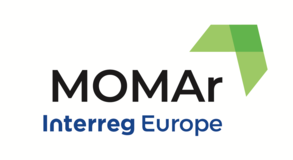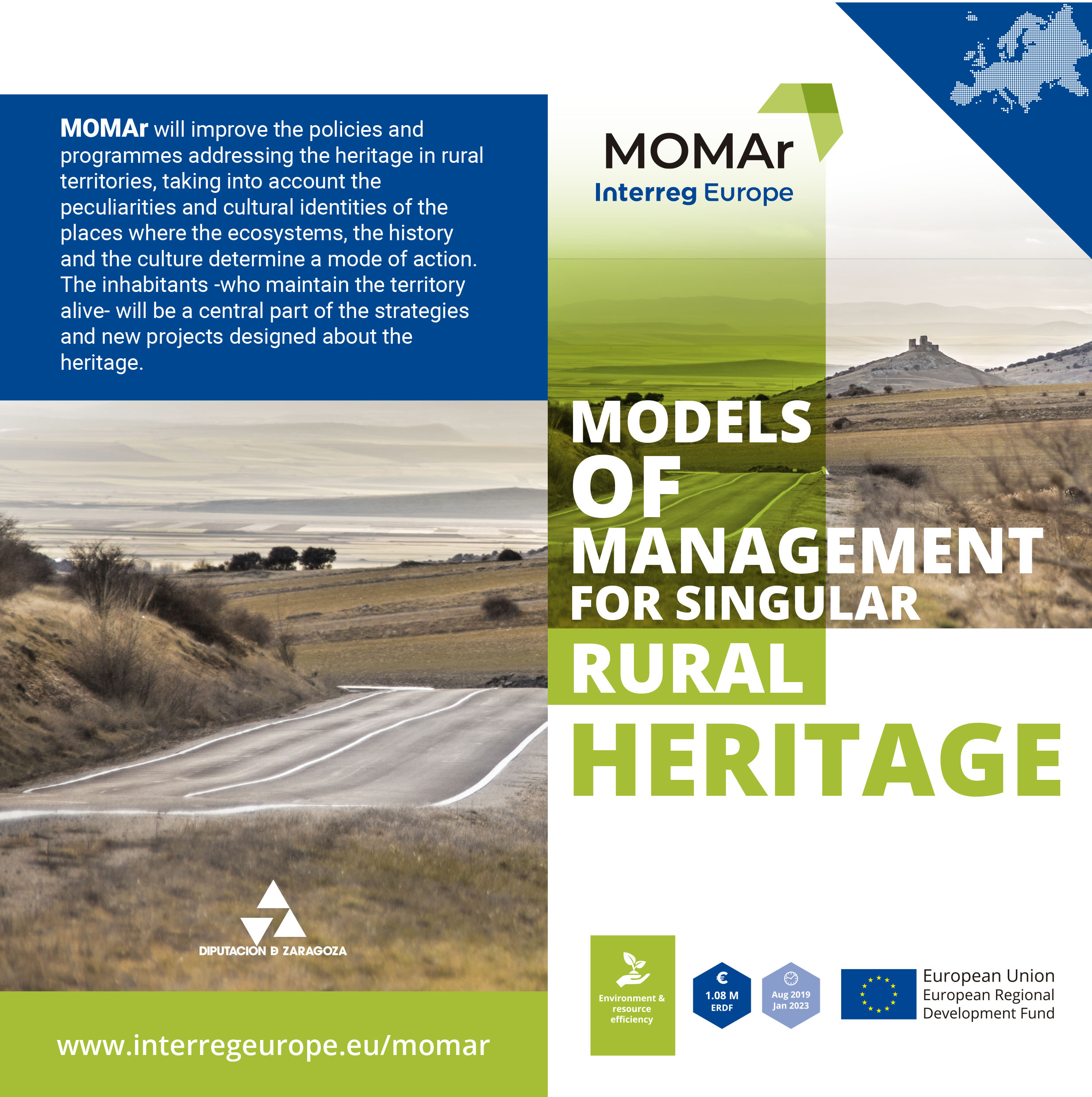MOMAr scientific coordinator, Irene Ruiz, participated this 2nd of march in the Green Transition under the European Recovery and Resilience Facility (ERRF) webinar, organised by the Interreg Europe Policy Learning Platform. The meeting proposed to explore the ERRF and its opportunities for Europe’s regions and it had the intervention of different European experts.

On behalf of MOMAr and the Provincial Government of Zaragoza (DPZ) (lead partner), Ruiz focused on how the project in Spain is aligning its objectives related to heritage management to the Aragon Government Strategy for Social and Economic Recover, on the current framework for the implementation of the European Recovery and Resilience Facility (ERRF). In that sense, the scientific coordinator defended how strategic heritage management can contribute to a greener, more digital, and more social Aragon. To do this, she exposed the particularities of the province of Zaragoza as a mostly rural territory with a high depopulation, but also with a large concentration of cultural and natural heritage, in many cases UNESCO heritage, the object of study of the MOMAr project, and with high potential to help on the territory recovery after the pandemic crisis. Actually, DPZ is already working on the implementation of the European requirements for sustainability and digitization in the management of local heritage, as well as for the network of professional entities in the sector to benefit from the economic investment proposed by Europe through ERRF, which will make 672.5 billion EUR of loans and grants available to support reforms and investments.
In conclusion, Irene Ruiz, pointed out the need for the entities and professionals interested to ask for help from their public authority. “The ideas are there, we just need to put them in action and to know who you can ask for help”, she declared.
The webinar started with the speaker, Adela Tesarova, Deputy Head of Unit, European Commission, DG Energy, Unit A.4 ‘Economic analysis and Financial instruments’, who explained the details of the ERRF in terms of Green Transition. The expert highlighted the increasing potential of green energies and identified this moment as “an opportunity to frontload green (energy) reforms and investments and speed up decarbonisation”.
Regarding the regional needs and experiences, Alessandro Drago, Project Officer at Lazio Region, Economic Programming Direction, described the regional priorities for the green transition such as the adaptation to climate change and water resources, sustainable mobility, blue and circular economy, or smart cities, among others. Besides, the expert explained the strategic lines to access the ERRF in this Italian region, which are the modernization of the country, the ecological transition together with social inclusion and territorial, gender equality.
In addition, Simon Hunkin, thematic expert of Interreg Europe Policy Learning Platform, presented the results of the Interreg Europe community survey on the ERRF, which received 87 responses from 17 member states, and highlighted as the most important flagship areas in their region the clean technology and renewables, and the strategic planning, infrastructure, and training to increase capacity skills, the type of projects the community ask for to be funded.
The webinar was moderated and introduced by Astrid Severin and Katharina Krell, Thematic Experts for Environment, Resource Efficiency & Low Carbon Economy, Policy Learning Platform and Thorsten Kohlisch, project manager Interreg Europe Policy Learning Platform, who introduced the Platform as a space for continuous learning, dedicated to practitioners of regional development policies.
If you missed the Webinar, you can watch it here













